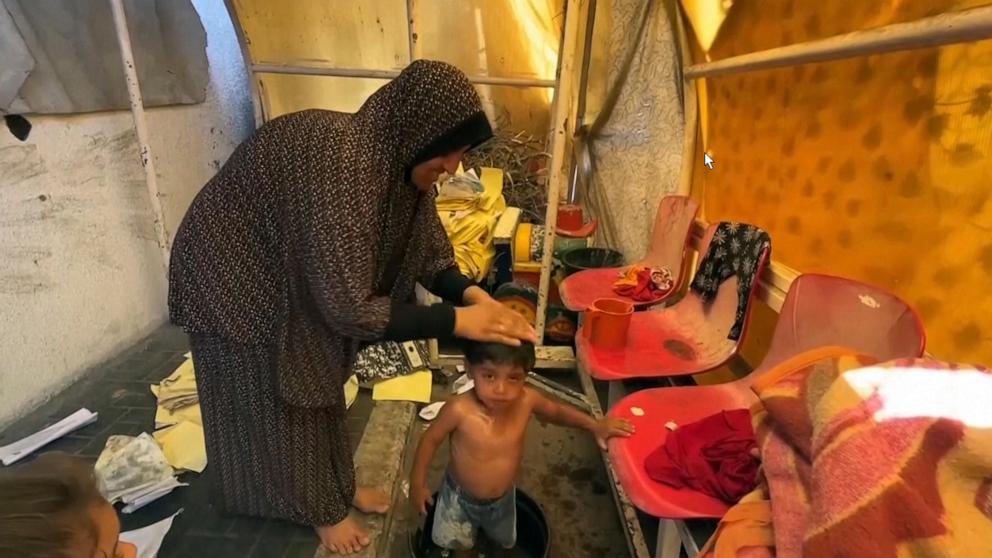Thousands of displaced people in northern Gaza are taking refuge in what was once the territory's largest soccer stadium.
GAZA CITY, Gaza Strip — Thousands of displaced Palestinians in northern Gaza have taken refuge in what was once the strip's largest soccer stadium, where families are surviving on little food and water as they try to stay ahead of Israel's latest offensive.
Their makeshift tent is set up in the shade under the stadium seats, with clothes hanging out to dry in the July sun across the dusty, dry football field. Under the covered benches where the players sit on the sidelines, Um Bashar bathes her toddler, standing in a plastic tub. As she lathers soap into his hair and splashes cold water over his head, the boy wriggles and shivers, gripping the plastic seat for balance.
They have been forced to flee many times, most recently due to renewed Israeli operations against Hamas in the Shijaiya neighborhood of Gaza City, she said.
“I woke up and there was a tank in front of my door,” she said. “I had no mattress, no pillow, no clothes, nothing. I didn't even have food.”
She and about 70 others fled to Yarmouk Sports Stadium, less than two miles (3 kilometers) northwest of Shijaiyah. The stadium was heavily bombed early in the war and is now nearly empty. Many who made it there say they have nowhere to go back to.
“We left our homes,” said a man named Hazem Abu Traya. “All our houses were bombed and burned, as were the houses around us.”
Hundreds of thousands of people remain in the northern Gaza Strip despite Israeli forces encircling the area and largely isolating it. But aid flows have improved in recent days, and the United Nations said earlier this week that it was able to meet the basic needs of people in the north. Israel has allowed aid to flow into Gaza and has accused the UN of not doing enough to move it out.
Yet residents say poverty and insecurity are taking a growing toll.
“There is no safe place. Safety is with God,” said Um Ahmad, a displaced woman. “The fear is now felt not only by children but also by adults… We don't feel safe even when walking down the street.”

